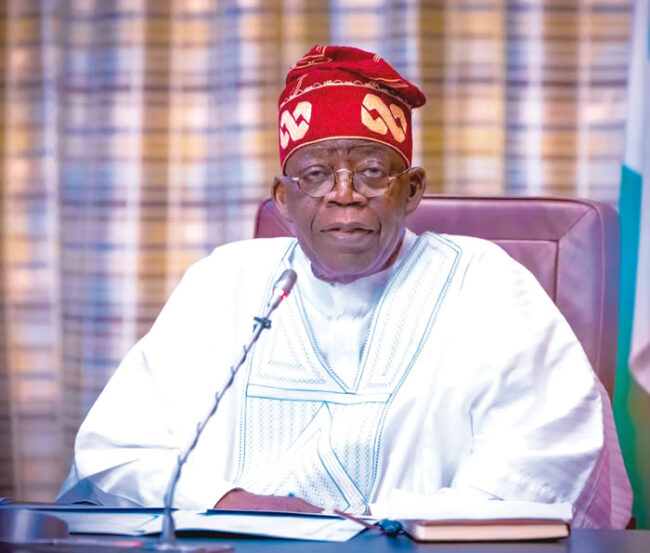Coalition of Northern Groups, Taraba state chapter, has said that effects of the proposed Tax Reform Bill by President Bola Tinubu’s administration will bear more scars on the region than any other part of the country.
Speaking during a press conference in Jalingo, Taraba state capital, the group’s coordinator, Comrade Idris Ayuba said that people in the North faced the consequences of FG policies like petroleum subsidy removal and land border closure, among others.
The northern youths, who lamented the economic hardship in the country, said that, “Reduction in the consumption of such commodity like petroleum, occasioned by the subsidy removal, is not a manifestation of a positive policy impact.
“It rather indicates reduced economic activities that force people out of energy consumption”.
On the land border closure, Idris said: “One of the primary concerns is the impact of this policy on the regional economy, which has been heavily reliant on cross-border trade with neighbouring countries. The closure has resulted in significant losses for traders and business owners in the region, exacerbating poverty and unemployment.
“The policy has given undue advantage to Southern Nigeria, for instance, the closure has led to an increase in demand for locally produced goods in Southern Nigeria, which has boosted the southern regional economy.
“Additionally, the Southern region has benefited from the increased revenue generated from customs duties and taxes on imported goods.
“The closure has also created an imbalance in the distribution of economic opportunities, with Southern Nigeria having greater access to ports and international trade routes. This has resulted in a concentration of economic activity in the Southern region, further marginalizing Northern Nigeria”, he said.
The people also said that the proposed tax reforms, particularly, its revenue sharing formula, will disproportionately affect Northern Nigeria, saying, “One potential impact is a reduction in the region’s revenue allocation, which could hinder its ability to fund development projects and provide essential services to its population.
“Northern Nigeria is already grappling with significant development challenges, including poverty, infrastructure deficits, and limited access to education and healthcare. A decrease in revenue allocation could exacerbate these issues”, the people said, urging the federal government “to retrace and reconsider certain conditions before taking certain steps in certain directions”.
Still on the tax reforms, the group said it would widen the economic gap between Northern and Southern Nigeria, “since the Southern region is already home to many Nigeria’s major industries and economic hubs”, saying that a more favourable revenue sharing formula could further consolidate its economic advantage.
“This could lead to a brain drain and talent flight from Northern Nigeria, as individuals seek better economic opportunities in other parts of the country. This policy if allowed to pass, will bring about national disintegration, strife and bad blood between the North and South.
“The tax reforms could also have a negative impact on the region’s agricultural sector, which is a significant contributor to its economy”, the group said.
ALSO READ: Northern CSOs back Tinubu, Matawalle’s fight against banditry
Urging policymakers to consider the potential impacts of these reforms and work to ensure that they do not exacerbate the existing economic inequalities, the group advised that the North’s contribution to the nation’s coffers should not be solely measured by its economic output.
“The region’s agricultural sector, for instance, is a vital component of the national economy. The Northern farmers produce a significant portion of the country’s food, which deserves recognition and compensation.
“It’s essential to recognize the historical and structural inequalities that have hindered the North’s economic development. The proposed tax reform bill should aim to address these disparities rather than perpetuate them.
“A more equitable revenue-sharing formula would acknowledge the North’s unique challenges and contributions, ensuring that the region receives a fair share of the national revenue.
The people lamented many abandoned federal government projects in North, mentioning the Mambila hydroelectric project “that has been in the works for over 40 years, with the first feasibility study conducted in 1972; the project has faced unexplainable delays.
“The Mambilla Hydropower Project is estimated to cost around $5.8 billion, with the Chinese Export-Import (Exim) Bank funding 85 per cent of the project, while the Federal Government of Nigeria provides the remaining 15 per cent.
“The project is expected to generate 3,050 megawatts of electricity, making it the largest power-generating installation in Nigeria.
“The Jalingo-Numan Road project has equally lingered for more than 15 years without a tangible commitment to even start it. It’s essential to note that the project is crucial for connecting the Taraba State to other parts of the country.
“The failure to complete these projects perpetuates the existing disparities between the North and the South. The lack of investment in critical infrastructure hinders the region’s ability to attract businesses, create jobs, and stimulate economic growth, create jobs, and stimulate economic growth”, they said.
READ MORE FROM: NIGERIAN TRIBUNE
